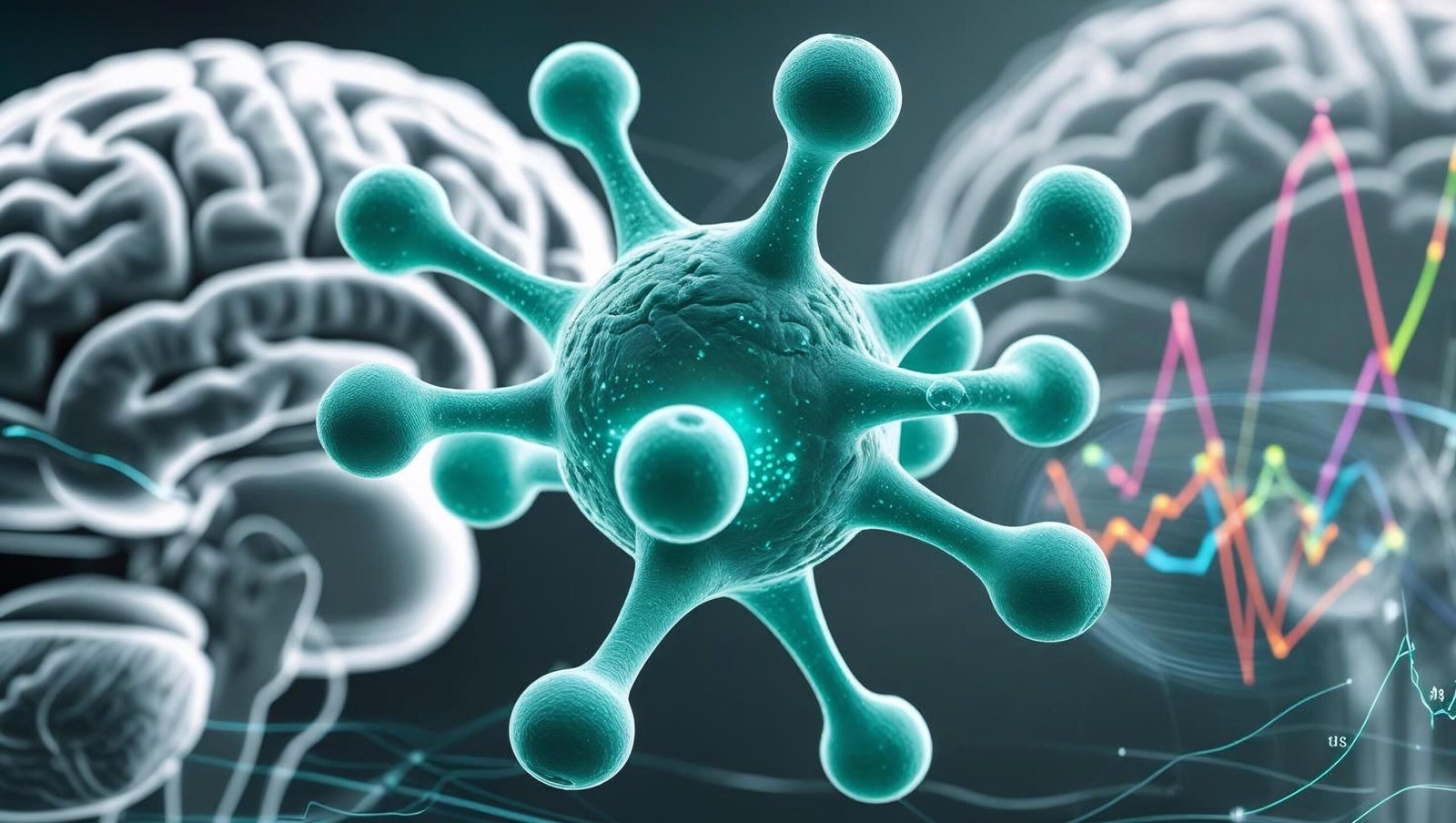Introduction
In a world intoxicated with pleasure and overstimulation, Dopamine Nation by Anna Lembke offers a bracing confrontation with our dopamine-driven culture. As a psychiatrist specializing in addiction, Dr. Lembke brings an urgent message to a society obsessed with ease, comfort, and constant entertainment.
This riveting book uncovers why, in the pursuit of happiness, we are actually becoming more miserable—and how the dopamine cycle is to blame. Through poignant patient stories, gripping neuroscience, and ancient wisdom, Dopamine Nation by Anna Lembke compels us to rethink how we consume pleasure and process pain.
Let us delve into the 7 most profound and eye-opening lessons from this transformative work.

Lesson 1: The Dopamine-Driven Pain-Pleasure Balance
At the heart of Dopamine Nation by Anna Lembke lies a foundational truth: pleasure and pain are processed in the same parts of the brain, and they work like a seesaw. Every time we tip the balance toward pleasure, pain responds by pushing back just as hard.
Dr. Lembke introduces the concept of the “dopamine deficit state”—a condition where the brain, after being overstimulated, suppresses dopamine production, leaving us joyless and craving more stimuli. From smartphones to sugar, our everyday habits constantly push this seesaw out of balance.
This insight is terrifying and liberating. It means our modern lifestyle is structured around a cycle of self-inflicted suffering. Yet, it also means that by recalibrating our exposure to pleasure, we can regain control.
Lesson 2: Abstinence Can Restore Dopamine Balance
A key intervention explored in Dopamine Nation by Anna Lembke is what she calls the “dopamine fast.” Dr. Lembke asks patients to abstain from their addictive behaviors for at least 30 days to allow the brain to reset.
During this abstinence, the seesaw regains balance. Pain recedes. Pleasure becomes possible again—without dependency.
Whether it’s video games, alcohol, online shopping, or social media, this 30-day period brings tremendous healing. As Dr. Lembke writes, “The pain of withdrawal is the path to freedom.”
This may sound austere, but the book shows how patients emerge with clearer minds, deeper joy, and a renewed sense of purpose.
Lesson 3: The Paradox of Pursuing Pleasure
Perhaps the most haunting insight in Dopamine Nation by Anna Lembke is that the more we chase pleasure, the more elusive it becomes. In a culture designed for maximum convenience, this truth is counterintuitive—and unsettling.
Lembke illustrates this with real-life stories: a woman addicted to romance novels, a man spiraling in porn consumption, teenagers lost in endless TikTok loops. These are not extreme outliers; they are reflections of us all.
The book urges readers to accept discomfort as a necessary ingredient of joy. Without pain, pleasure becomes meaningless. Without effort, happiness becomes hollow.
Lesson 4: Radical Honesty Is the Antidote to Shame
One of the most powerful themes in Dopamine Nation by Anna Lembke is the role of radical honesty in recovery. Lembke challenges the secrecy and shame that often surround addiction and compulsive behaviors.
She urges her patients to share their truths—to sponsors, friends, family, or even strangers. Why? Because secrecy fuels shame, and shame fuels addiction. Radical honesty breaks that vicious loop.
This honesty isn’t merely about confession. It’s a therapeutic weapon, helping patients dissolve denial and face their inner turmoil with courage.
As Lembke notes, “Telling the truth helps us stop running from pain and teaches us to embrace it.”
Lesson 5: Pain Is Not the Enemy
Contrary to cultural messages, Dopamine Nation by Anna Lembke argues that pain has value. Avoiding it completely sets us up for suffering.
Lembke references ancient wisdom and Stoic philosophy, which held that discipline, hardship, and even suffering are essential for growth. She calls for “intentional pain”—voluntarily choosing discomfort to strengthen the psyche.
This can mean cold showers, fasting, exercise, or simply facing boredom. These practices recalibrate our reward systems and reintroduce balance.
Her message: do not flee from pain. Lean into it. Befriend it. Only then can you truly appreciate joy.

Lesson 6: The Age of Abundance Is Making Us Sick
Another central idea in Dopamine Nation by Anna Lembke is that we are evolutionarily wired for scarcity—but we live in abundance. Our ancestors struggled to find food, shelter, and rest. Now, everything is available instantly, and that abundance overwhelms our primitive brain.
This mismatch causes our reward system to overload. The result? Obesity, depression, addiction, and burnout.
The book forces readers to confront this uncomfortable reality: many of our problems are self-inflicted, not due to lack, but excess. And the cure is not more consumption—but deliberate limitation.
Lesson 7: Connection Is the Ultimate Cure
In its most hopeful message, Dopamine Nation by Anna Lembke reveals that the opposite of addiction is not sobriety—it is connection. Disconnection fuels addiction; reconnection heals it.
Group therapy, family bonding, community circles, and spiritual fellowship are shown as powerful tools in the book. Human beings heal when they feel seen, heard, and valued.
Isolation deepens our dependence on artificial dopamine. Authentic connection restores natural joy. In an era of digital distraction, this lesson is more urgent than ever.
Addiction in the Age of Instant Gratification
The modern world has become a breeding ground for addiction—not merely in the conventional sense of substances like drugs or alcohol but in the broader, more insidious form of behavioral addiction. As Dopamine Nation by Anna Lembke incisively points out, the compulsion to seek pleasure has embedded itself deeply into our lifestyles, often under the guise of productivity, connectivity, or entertainment.
In our daily existence, we scroll endlessly through feeds, click compulsively on online deals, and binge-watch content with numbed delight. What Dopamine Nation by Anna Lembke reveals with unflinching honesty is that our neurological circuits were never engineered to handle this kind of sustained stimulation. The consequences are not trivial—they affect our moods, relationships, decision-making, and ultimately, our sense of self.
The book warns us that the cost of unchecked indulgence is our very humanity. It is not a dystopian warning, but a clinically verified consequence supported by patient narratives and neurochemical research. In doing so, it compels even the most skeptical reader to re-evaluate what counts as “normal” behavior in the digital era.
Neurological Hijack: Understanding Dopamine’s Role
To fully appreciate the arguments made in Dopamine Nation by Anna Lembke, one must first understand the central player: dopamine. This neurotransmitter is not simply the “pleasure chemical” as popularly known; it is, more precisely, a motivation and reinforcement signal. Every ping from our devices, every swipe on our phones, every like and every share triggers a surge of dopamine, reinforcing the behavior and compelling us to repeat it.
Lembke painstakingly explains how this seemingly harmless process can spiral out of control. When dopamine levels spike too frequently, the brain tries to restore equilibrium by downregulating receptors or reducing production. This creates a dopamine deficit, where baseline pleasure becomes elusive, leading to irritability, anxiety, and a craving for more stimulation.
Such information is not merely educational; it’s deeply unsettling. It illustrates how ordinary people, without any history of substance abuse, can become neurochemically enslaved to everyday activities.

Digital Dopamine: The New Drug of Choice
The reach of Dopamine Nation by Anna Lembke extends to one of the most profound challenges of the 21st century: the digital addiction epidemic. With remarkable foresight, the author presents how technology companies, driven by profit, engineer platforms to hijack the brain’s reward system.
She recounts stories of young adults caught in the grip of social media compulsion, online gambling, and hyper-sexualized content—all of which serve as powerful dopamine triggers. The book unveils how these technologies, while marketed as tools for connection, are in fact mechanisms of behavioral conditioning.
We are being trained—unknowingly—to crave validation, novelty, and distraction. Dopamine Nation by Anna Lembke makes a persuasive case that the world is not just saturated with temptation, but designed around it. Escaping its pull requires not just willpower, but systemic change and collective awareness.
The Morality of Moderation: Stoicism Revisited
What makes Dopamine Nation by Anna Lembke stand apart is its philosophical undercurrent. Lembke does not merely advocate for behavioral adjustments—she calls for a moral renaissance, one grounded in the principles of ancient wisdom. Her call to embrace pain, to resist indulgence, and to cultivate discipline aligns closely with Stoic and Buddhist teachings.
In this regard, the book is more than a psychiatric narrative; it is a moral treatise for the digital age. It insists that to find true balance, we must resurrect virtues that the modern world considers obsolete: temperance, honesty, self-control, and fortitude.
This reframing offers a refreshing contrast to the common self-help advice centered on comfort and ease. Lembke argues that comfort is overrated, and that a meaningful life requires intentional discomfort. This is not austerity for its own sake, but a pathway to reclaiming agency over our neurochemical and emotional landscape.
Societal Implications and the Medicalization of Pleasure
An often-overlooked dimension of Dopamine Nation by Anna Lembke is its critical view of how society—and especially the medical industry—enables the epidemic of overconsumption. The author bravely critiques her own profession for its role in pathologizing normal distress and overprescribing quick chemical fixes.
Antidepressants, benzodiazepines, painkillers—many of which are dopamine manipulators—are offered not as last resorts but as standard responses to life’s challenges. Lembke argues that this reflects a profound misunderstanding of what it means to be human. Suffering, she reminds us, is not always pathological. Sometimes, it is a signal of growth.
By overmedicalizing emotions, we have created a culture that believes all discomfort must be eradicated. Dopamine Nation by Anna Lembke turns this belief on its head. The book affirms that the antidote to emotional fragility is not more medication, but more meaning.
Case Studies That Resonate Deeply
The soul of Dopamine Nation by Anna Lembke lies in its gripping case studies. Lembke introduces us to patients who are achingly relatable: a teenage boy addicted to gaming, a middle-aged woman compulsively shopping online, a physician struggling with opioid dependency.
What’s striking about these stories is their ordinariness. These individuals are not outliers. They represent the average citizen under the sway of invisible chains. Their recovery journeys are not miracles—they are hard-fought battles that involve daily discipline, social support, and deep inner work.
These narratives give the book its heart. They transform abstract neuroscience into visceral human experience. Through them, Dopamine Nation by Anna Lembke accomplishes what few scientific books do—it builds compassion without losing rigor.

Cultural Transformation: A Call to Collective Responsibility
One of the most poignant appeals in Dopamine Nation by Anna Lembke is its call for collective awakening. Addiction is not merely an individual failing, but a societal symptom. Our culture, with its relentless focus on performance, ease, and consumption, cultivates dependency.
The author urges readers to reconsider how we design public spaces, education systems, and workplaces. Are we creating environments that reinforce discipline and connection—or those that fragment attention and reward passivity?
The book demands that we stop blaming individuals and start reforming structures. Parents must model restraint, educators must teach emotional regulation, and employers must discourage burnout-inducing practices.
By broadening the lens from personal pathology to societal design, Dopamine Nation by Anna Lembke elevates its message from mere self-help to civilizational critique.
Spiritual Implications: Rediscovering Transcendence
What is perhaps least expected—but most profound—is the spiritual resonance of the book. Without being religious, Dopamine Nation by Anna Lembke touches upon the hunger for transcendence that lies beneath many addictions.
When the soul lacks meaning, it turns to synthetic highs. In absence of community, people seek connection through screens. When rituals disappear, compulsions take their place. The author does not preach doctrine, but she points toward a truth found in all wisdom traditions: human beings need more than pleasure—we need purpose.
Through this lens, addiction is not just a disease of the brain—it is a crisis of the spirit. Recovery, therefore, involves more than abstinence. It requires a new worldview, one that honors discipline, community, and awe.
Relevance in Educational Institutions and Corporate Culture
The insights from Dopamine Nation by Anna Lembke are not confined to the therapist’s office. They hold immense relevance for institutions that shape human behavior—especially schools and corporations.
In schools, attention spans are shrinking, and digital distractions are rampant. Teaching children how dopamine works and how to delay gratification could be revolutionary. Integrating these lessons into curricula would equip students with psychological literacy that outlasts academic content.
In corporate settings, the pressure to always “be on” breeds burnout and addiction. Businesses must take seriously the need to create dopamine-neutral work environments, promote digital hygiene, and offer support for employees dealing with compulsive behaviors.
Dr. Lembke’s work offers a roadmap—not just for personal healing, but for institutional transformation.
Timeless Wisdom in a Time-Bound World
Above all, Dopamine Nation by Anna Lembke is a timeless work anchored in contemporary urgency. It translates ancient truths into modern neurobiology. It confronts our most uncomfortable questions and offers answers that are simple but not easy.
This is not a book to be read passively. It is a call to arms—a scholarly manifesto against mindless indulgence and a heartfelt plea for conscious living.
In a time where we confuse stimulation with joy and sedation with peace, Dr. Lembke invites us to reclaim the richness of restraint. Her message: to suffer less, we must be willing to feel more.

Final Thoughts
The brilliance of Dopamine Nation by Anna Lembke lies in its brutal honesty and radical hope. It does not sugarcoat the cost of overindulgence, nor does it offer cheap solutions. Instead, it delivers truth with empathy and clarity.
For the reader who dares to confront their compulsions—for the educator seeking to guide the next generation—for the policymaker, the parent, or the person lost in loops of pleasure-seeking—this book is a gift.
Let it disturb you. Let it awaken you. Let it transform you.
Why This Book Matters in 2025
Dopamine Nation by Anna Lembke is not just a book about drug addiction. It’s a cultural diagnosis—a mirror held up to the modern soul. In 2025, with the proliferation of AI, hyper-personalized content, and instant gratification on every screen, the book’s insights are not just relevant; they are life-saving.
Dr. Lembke writes with empathy, clarity, and scientific precision. Her words resonate because they expose the silent pain of our overstimulated lives and offer a way out—not by avoiding pain, but by embracing discipline and truth.
FAQs about Dopamine Nation by Anna Lembke
1. What is the main idea of Dopamine Nation by Anna Lembke?
The book explores how modern society’s obsession with pleasure leads to addiction and unhappiness and how pain and abstinence can restore balance to our lives.
2. Who should read Dopamine Nation by Anna Lembke?
Anyone struggling with addiction, burnout, overstimulation, or seeking personal transformation will benefit from this book. It’s also valuable for mental health professionals and educators.
3. Is Dopamine Nation by Anna Lembke scientific or anecdotal?
It combines both. Lembke supports her points with neuroscience and real-life patient stories, making it both authoritative and deeply human.
4. How does the book help people dealing with addiction?
It introduces the concept of dopamine fasting, radical honesty, and voluntary discomfort, all grounded in science and proven to be effective in recovery.
5. Is the book relevant for non-addicts?
Absolutely. Dopamine Nation by Anna Lembke addresses universal patterns of behavior that affect nearly everyone in the digital age.
Conclusion
Dopamine Nation by Anna Lembke is not merely a book—it is a siren call to a world drowning in indulgence and craving relief. It demands that we look deeper into our compulsions, strip away the shame, and choose a better path—one paved with truth, discipline, and meaning.
This work changes you. It forces uncomfortable questions and delivers unforgettable truths. If you feel distracted, overstimulated, or emotionally numb, this book is your lifeline.
So take the bold step. Unplug. Reflect. And rediscover the joy that comes not from chasing more—but from embracing less.
For more insightful book reviews like this, visit
👉 shubhanshuinsights.com
Your gateway to clarity in a cluttered world.